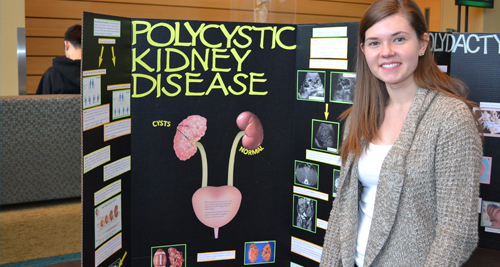Living with ADPKD – Support and Lifestyle Advice
Living with ADPKD is about more than managing test results — it involves adapting to a chronic condition, emotionally and practically. Many people with ADPKD lead full lives, particularly when supported by a strong care network and a healthy lifestyle.
Key lifestyle strategies include:
- Staying hydrated, unless advised otherwise by your doctor
- Eating a balanced, kidney-friendly diet — low in salt, processed foods, and added sugars
- Avoiding alcohol and limiting caffeine
- Exercising regularly, such as walking, swimming, or yoga
- Monitoring blood pressure at home
- Avoiding NSAIDs (like ibuprofen), which can harm the kidneys
- Not smoking
People with ADPKD should have regular check-ups with a nephrologist, especially if their eGFR begins to decline. Annual ultrasounds, blood work, and blood pressure readings are often recommended.
Support is crucial. Connecting with ADPKD support groups, either online or through local hospitals, can make a significant difference. It helps to know others share similar challenges and can offer tips, empathy, and hope.
In South Africa, support varies across regions, but some NGOs and nephrology clinics offer patient education days, support services, and even counselling for patients and families. Family planning support is also important, as people with ADPKD often worry about passing the condition on to their children.
Living with ADPKD
The emotional journey can be just as significant as the physical one. Fear of dialysis, guilt about family inheritance, and fatigue from medical appointments are common experiences. Don’t hesitate to seek mental health support.
By focusing on early detection, lifestyle change, and long-term planning, many people with ADPKD can enjoy life with resilience and purpose.
Living with Purpose and Resilience
ADPKD (Autosomal Dominant Polycystic Kidney Disease) is a lifelong condition, but it does not define a person’s future. With the right lifestyle choices, ongoing medical care, and emotional support, individuals with ADPKD can continue to work, raise families, and pursue meaningful goals. Self-care and support networks play a vital role in maintaining quality of life.
Building Support in South Africa
In South Africa, disparities in access to care still exist, but resources like nephrology clinics, patient education programmes, and online communities are steadily growing. Emotional support, advocacy, and lifestyle education must remain central to managing ADPKD in diverse communities. Living well with ADPKD is possible — and no one should have to do it alone.
👉 [End of Series | Back to Overview]


